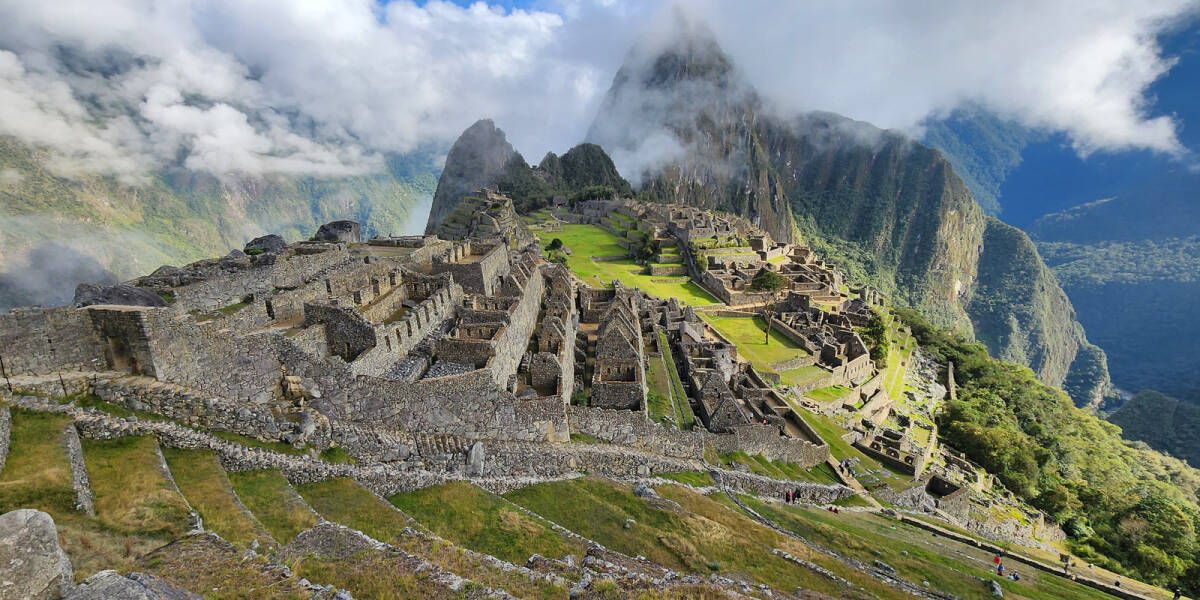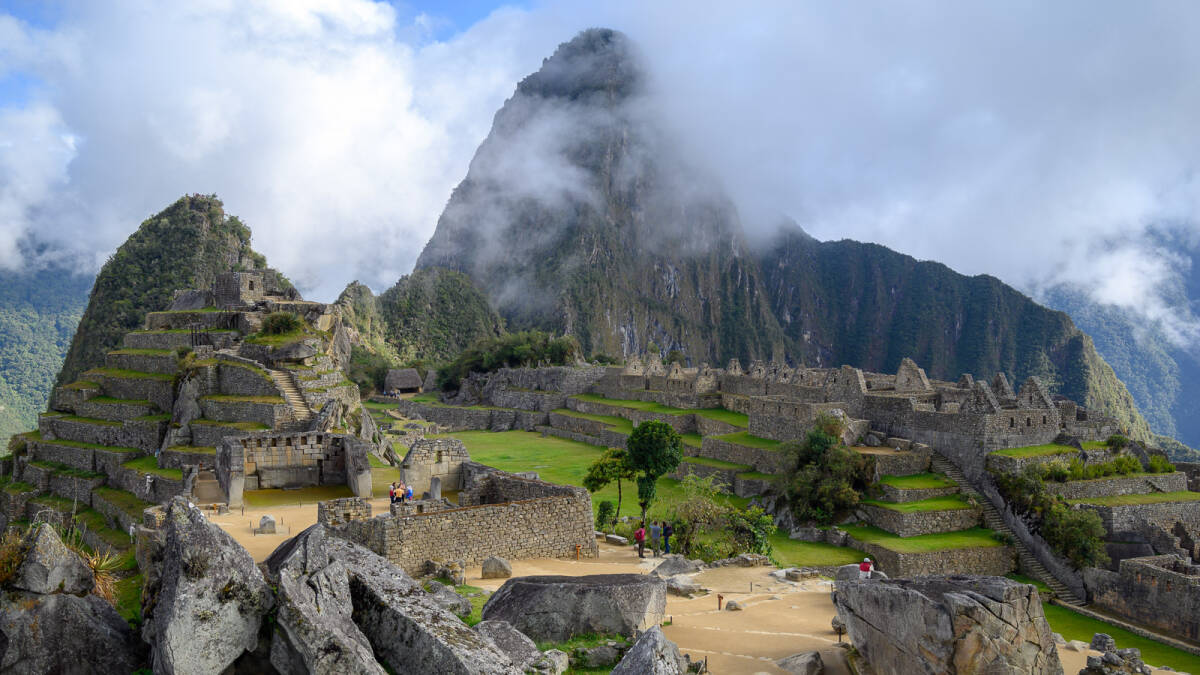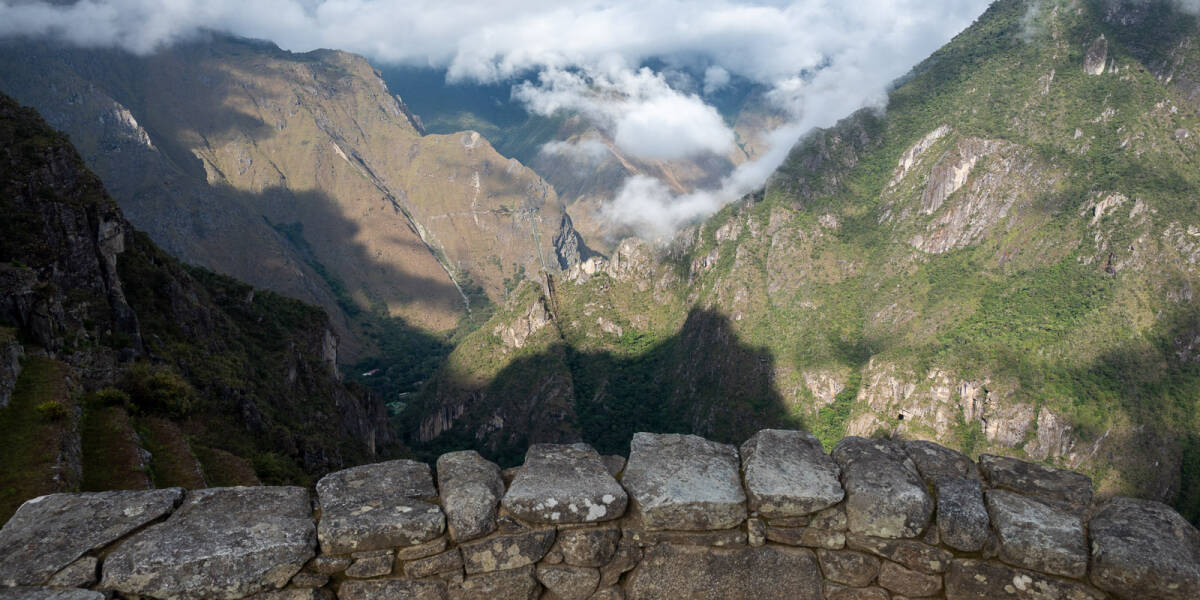Misty Morning at Machu Picchu
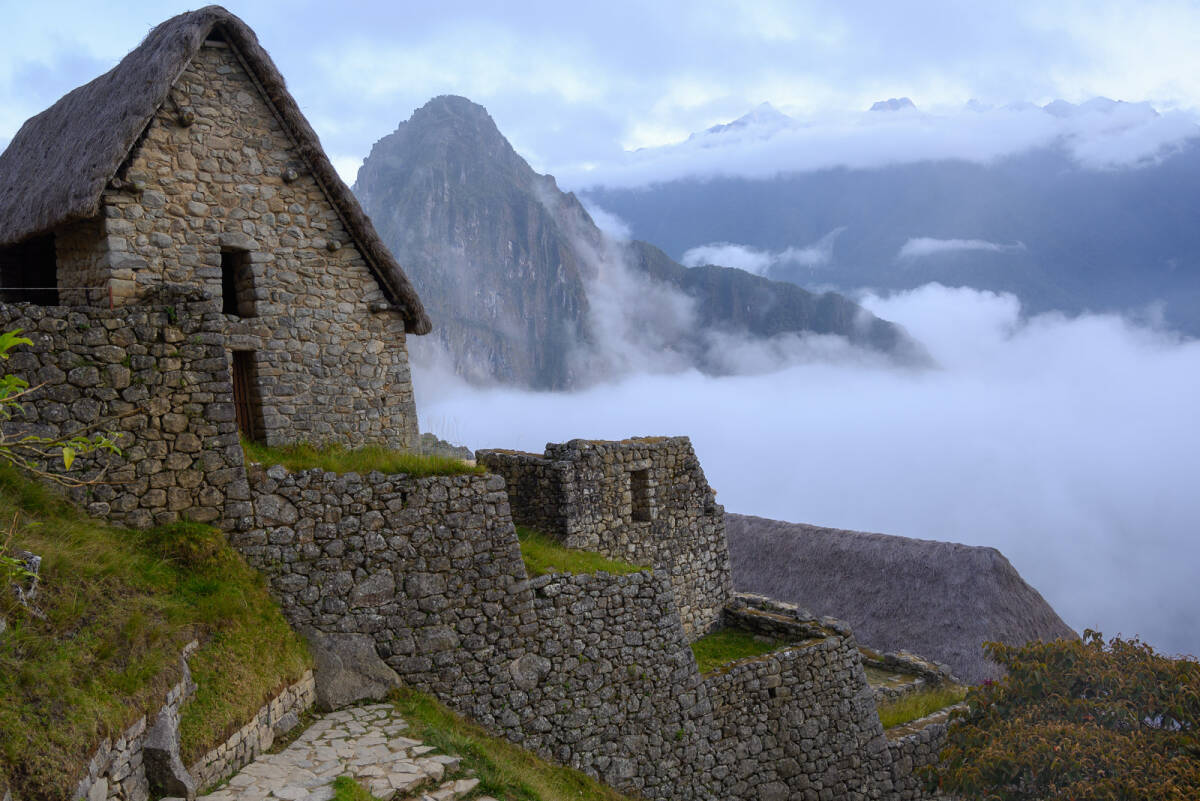
You got up way too early, but it was worth it as you find yourself standing outside the gates of Machu Picchu shortly before 6am on a misty morning. The gates open promptly, and as you walk along the entrance path the first structures you see appear to sit on the edge of a sea of fog, with Huayna Picchu rising in the distance like an island.
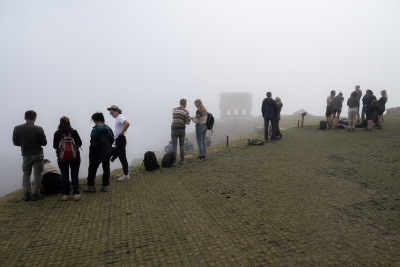
After a quick scramble up the terraces and a brief encounter with llamas you find yourself at the top of the agricultural sector, near the House of the Guardians and surrounded by the thick fog. It is not crowed, but you are not alone as you stand near the edge and wait for a view of Machu Picchu below. Your guide warns you that sometimes the mist sticks around all morning, but you can already see signs of clearing.
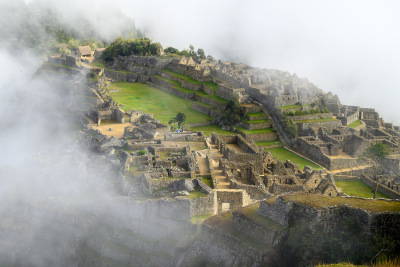
A hole in the clouds has opened above the central plaza and you can see the sun shining on the ruins below, surrounded by swirling mist. The vibrant green of the Central Plaza stands out in the warm light. The view comes and goes as the mist shifts.
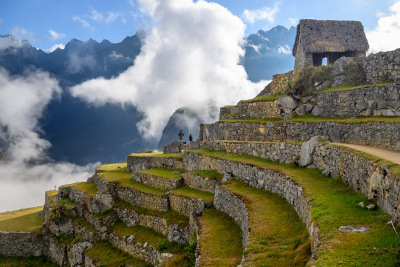
To the east the sunrise is quickly burning off the fog, and the last puffs rise upward into the brilliant blue sky. The patchy grass has a golden glow as the sun comes out. You look down toward the amazing scene below as the full scale of Machu Picchu is revealed.
On the left is the Urban District with its many buildings. Behind that lies the Sacred District, your next destination. To the right on the other side of the central plaza is the Industrial District. Along with the Agricultural district you are standing on, these make up the major areas of Machu Picchu.
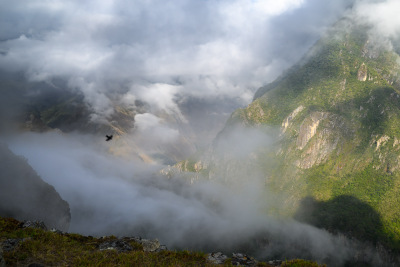
As you walk down and to the left toward the City Gate, you look westward into the valley and see a hawk diving into the fog. You wonder what it would be like to be a bird flying over this spectacular scenery. The Urubamba river twists through the valley about a thousand feet below.
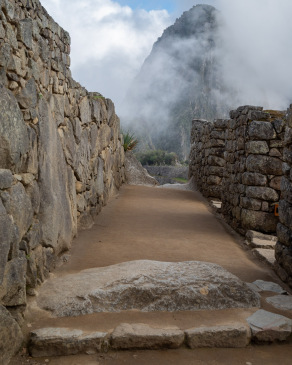
You continue down the path and into the city. Walking through the City Gate and into the Urban District you see Huayna Picchu in the distance still shrouded by fog. At the end of the corridor the view opens up once again and you can see the lush green Central Plaza, the Sacred District and the Industrial District sheltered in the arms of Huayna Picchu.
As you move toward the Sacred Plaza you pass the giant sharp stones of the quarry on the left. This is what all of Machu Picchu used to look like before it was shaped by human hands. You pass by one corner where a gigantic rock has shifted from its place leaving a huge gap, nudged over time by the forces of water and gravity.
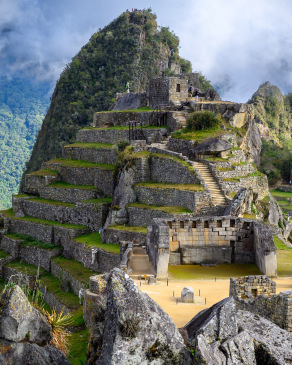
Your attention turns to the prominent mound where the ritual stone Intihuatana sits on top of the Sacred District. That area is only open for access in the morning to reduce wear and tear on the structure, and your are headed for it today before it closes. It looks like the home of some great fantasy wizard.
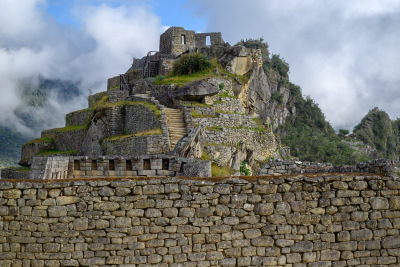
You walk through the Sacred Plaza passing the Main Temple and its cracked slumping walls, then pause for another spectacular view at the Temple of Three Windows. As you turn towards the steps you can see groundskeepers on a terrace below carefully removing weeds growing between the stones. Machu Picchu is very well cared for.
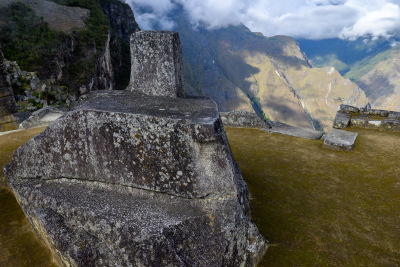
At the top of the winding stairs, you stand next to Intihuatana, hitching post of the sun. While its purpose is debated, this ceremonial rock is one of the few examples of its kind remaining. Most were destroyed by the Spaniards. Here from the highest point in the city you can see all of Machu Picchu and you take in the amazing view.
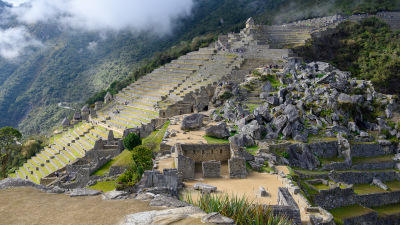
Looking back you can see where you came from, the agricultural terraces to the south with House of the Guardian visible on top. The fog is all gone. You look west again over a curving stone wall to see the shadow of Machu Picchu cast deep into the valley below.
